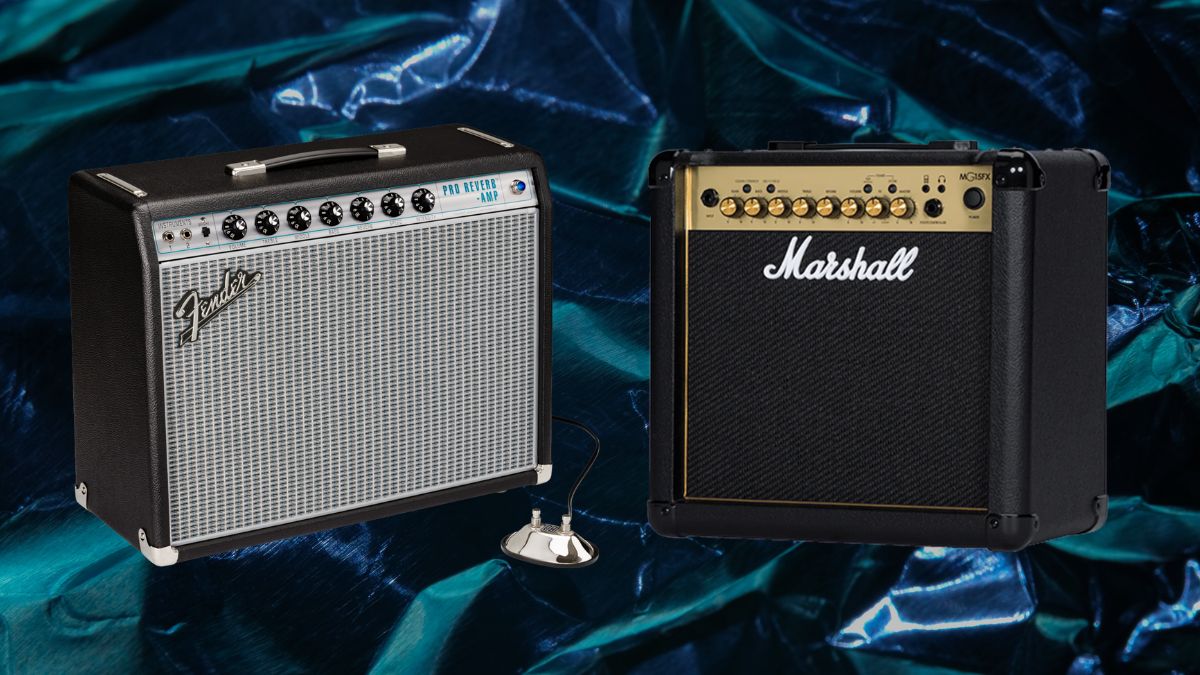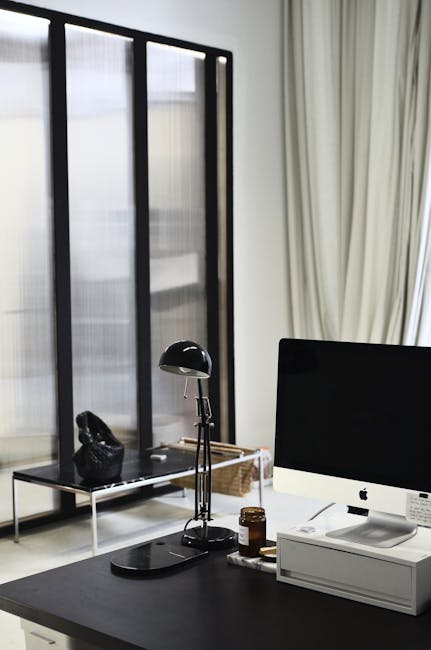You know that feeling when you finally get that perfect cup of coffee – it’s just the right amount of creamy, with a hint of caramel and a touch of perfection? That’s the feeling you should strive for when it comes to finding your ideal electric guitar amp sound. Because let’s face it, nothing ruins a jam session quicker than a lousy tone. So grab your axe and let’s embark on a hilarious journey to discover your ultimate amp sound.
Contents
- 1
- 2 Exploring Amp Types: Tube, Solid-State, and Modeling
- 3 The Significant Role of EQ Settings in Shaping Your Sound
- 4 Effects Integration: Pedals vs. Built-In Amp Effects
- 5 Experimenting with Speaker Size and Cabinet Configuration
- 6 Crafting Your Ideal Sound through Amp Modeling Software
- 7 Finding the Perfect Balance: Volume, Distortion, and Clarity
- 8 FAQs
- 9 Rock On with Your Ideal Sound!
gain“>Understanding the Basics of Amp Tone and Gain
So you want to understand the mysterious world of amp tone and gain, huh? Buckle up, because it’s going to be a wild ride. Imagine your amp is like a fancy sports car, and tone and gain are the gas pedals – they control how fast you can go and how badass you sound while doing it. But don’t worry, we’re here to help you navigate through the twists and turns of this sonic highway.
First off, let’s talk about tone. Tone is like the seasoning in your favorite dish – it can make or break the flavor of your sound. You can think of it as the EQ settings on your amp that shape the overall timbre of your guitar. Want a warm, buttery tone? Dial back the treble. Looking for some gritty, aggressive vibes? Crank up the mids. Experiment with different settings to find the sweet spot that speaks to your soul.
Now, onto gain. Gain is like the volume knob on steroids – it controls how much distortion or overdrive you add to your signal. Think of it as a spice rack for your sound, where a little goes a long way. Low gain settings are perfect for clean, sparkling tones, while high gain will unleash a tsunami of face-melting riffs. Just be careful not to crank it too far, unless you want your neighbors to call the cops on you.
Remember, amp tone and gain are like the yin and yang of your guitar sound – they work together in perfect harmony to create a sonic masterpiece. So go forth, young guitarist, and explore the endless possibilities that await you on your tone quest. And always remember: rock on, my friends. Rock on.

Exploring Amp Types: Tube, Solid-State, and Modeling
So, you’re in the market for a new amp, but you’re feeling overwhelmed by all the options out there. Fear not, brave guitarist! Let’s take a journey together through the wild world of amp types: Tube, Solid-State, and Modeling.
First up, we have the almighty Tube amp. These bad boys are like the rockstars of the amp world. They give off that warm, classic tone that just can’t be replicated. Sure, they might be a little high-maintenance, kind of like that one friend who always needs to borrow your gear but never returns it. But hey, it’s all worth it for that sweet, sweet sound.
Next on our list is the Solid-State amp. These amps are like the reliable sidekick of the amp world. They may not be as flashy as their Tube counterparts, but they’ll always be there for you when you need them. Plus, they’re super low-maintenance, kind of like that one friend who never asks for anything but always has your back.
And finally, we have Modeling amps. These amps are like the chameleons of the amp world. They can mimic the sound of pretty much any amp out there, making them perfect for the guitarist who likes to dabble in a little bit of everything. Think of them as the ultimate shape-shifter, blending in seamlessly with any genre or style.

The Significant Role of EQ Settings in Shaping Your Sound
Have you ever wondered why your music sounds like it’s coming from a tin can? Well, it might be because you’re neglecting the all-important EQ settings! EQ, short for Equalization, is like the magical seasoning that transforms bland, tasteless audio into a savory, delicious masterpiece.
Think of EQ settings as your very own audio sculpting tools. With a few twists and turns of those dials, you can carve out the perfect sound that will make your music stand out from the rest. It’s like being a sonic Picasso, painting vibrant hues of bass, mids, and treble to create a masterpiece that will make people say, “Wow, that sounds good!”
But beware, young audio padawan, for with great power comes great responsibility. One wrong move with your EQ settings and you might end up with a sound that’s as appealing as nails on a chalkboard. Nobody wants that, right? So, take heed and let the force of EQ be with you as you shape your sound to audio perfection.
So, the next time you’re crafting your musical masterpiece, remember the golden rule: tweak, twist, and tailor those EQ settings to suit your sound. Let your creativity run wild, and who knows, maybe someday your audio wizardry will be spoken of in hushed tones as the stuff of legends!

Effects Integration: Pedals vs. Built-In Amp Effects
When it comes to effects integration, the age-old debate between using pedals or relying on built-in amp effects rages on. Let’s break down the pros and cons of each, shall we?
Pedals:
- Endless customization options
- Easy to swap in and out for different sounds
- No need to shell out for a new amp just for different effects
- They look damn cool on your pedalboard
Built-In Amp Effects:
- Convenient and all-in-one package
- Less gear to lug around to gigs
- Less spaghetti mess of cables to deal with
- Perfect for the guitarist who can’t be bothered with the minutiae of pedalboard setup
Ultimately, the choice between pedals and built-in amp effects comes down to personal preference and playing style. Are you a tone purist who loves to tweak every little setting, or are you more of a plug-and-play kind of player? Whichever route you decide to go, just remember one thing: at the end of the day, it’s all about the music, man.

Experimenting with Speaker Size and Cabinet Configuration
After hours of painstaking research and a few too many late-night debates on audio forums, I decided to take the plunge and experiment with speaker size and cabinet configuration. Armed with a mix of excitement and trepidation, I embarked on this potentially eardrum-shattering journey.
First up was trying out different speaker sizes. I swapped out my dainty little bookshelf speakers for some mammoth floor-standing towers that made my living room look like a set from a rock concert. The difference in sound was like night and day - suddenly, I could hear every note, every nuance, and even the neighbor’s dog barking in the background.
Next on the agenda was playing around with cabinet configurations. I tested out everything from sealed enclosures to ported designs, feeling like a mad scientist in my own audio laboratory. The results were surprising – a sealed cabinet gave me tight, punchy bass, while a ported one made my chest vibrate like a subwoofer on steroids.
As I sat there, surrounded by a forest of speakers and cabinets, I couldn’t help but chuckle at the sheer absurdity of it all. But hey, if a little experimentation leads to a better listening experience, then who am I to argue? Time to crank up the volume and see what these babies can really do!
Crafting Your Ideal Sound through Amp Modeling Software
So you’ve got your guitar, you’ve got your amp, but there’s something missing. You just can’t seem to find that perfect sound you’re looking for. Well, fear not my fellow musician, because with the magic of amp modeling software, you can create your ideal sound without having to lug around a heavy amp everywhere you go.
With amp modeling software, the possibilities are endless. You can recreate the sound of a vintage tube amp, a classic British stack, or even a futuristic space-age amplifier. The best part is, you can do it all from the comfort of your own home or studio.
Not only can you customize the type of amp you want to use, but you can also tweak every aspect of your sound to perfection. From the EQ settings to the reverb level, amp modeling software allows you to fine-tune every detail of your tone.
So why settle for just one sound when you can have an entire arsenal of tones at your fingertips? With amp modeling software, you can let your creativity run wild and craft the perfect sound for any musical situation. Say goodbye to boring, generic tones and hello to a world of sonic possibilities!
Finding the Perfect Balance: Volume, Distortion, and Clarity
When it comes to finding the perfect balance in your audio mix, there are three key elements that can make or break the sound: volume, distortion, and clarity. Finding the right combination of these factors is like trying to solve a complicated puzzle while blindfolded – challenging, but oh so satisfying when you finally get it right.
Let’s start with volume. It’s like Goldilocks and the three bears – not too loud, not too quiet, but just right. Finding that sweet spot where your levels are balanced and harmonious is like hitting the jackpot in a game of musical roulette. Too loud and you risk blowing out everyone’s eardrums, too quiet and your masterpiece goes unheard. It’s all about finding that elusive middle ground where your mix shines like a golden nugget in a sea of noise.
Next up is distortion. It’s a delicate dance of pushing the boundaries without falling off the cliff into a cacophony of chaos. A touch of distortion can add grit and character to your sound, but too much and it’s like listening to a cat screeching in the middle of a metal concert. It’s all about finding that perfect balance where your sound is edgy and raw, but still palatable to the ears.
Lastly, we have clarity. It’s like trying to find a diamond in a pile of coal – shining, sparkling, and oh so precious. Clarity is all about making sure every element of your mix is crisp, clean, and distinct. No muddiness, no muffle, just pure, unadulterated sound that cuts through the noise like a ray of sunshine on a cloudy day. It’s the cherry on top of the audio sundae that ties everything together in perfect harmony.
FAQs
Why is finding the right amp sound important?
Well, imagine trying to rock out like Jimi Hendrix with a sound that’s more akin to a dying walrus. Your amp sound can make or break your guitar playing experience, so it’s definitely worth the effort to find the perfect tone.
What factors should I consider when choosing an amp?
Think about what kind of music you’ll be playing, how loud you want to get, and whether you want any fancy effects. And of course, don’t forget to take your own personal preferences and quirks into account – after all, your amp should reflect your unique style!
How can I experiment with different sounds?
Try playing around with your amp’s settings – crank up the gain for a gritty sound, dial back the treble for something smoother, or add some reverb for a touch of mystery. And don’t be afraid to get creative – maybe you’ll discover a sound that’s pure magic!
Should I invest in pedals to enhance my amp sound?
Pedals can definitely add some extra oomph to your amp sound, but they’re not necessary by any means. Feel free to test the waters and see if any pedals catch your fancy - just try not to get too carried away (or your wallet might cry).
How can I know when I’ve found my ideal amp sound?
When you plug in, start playing, and the heavens open up with a chorus of angels singing in perfect harmony… okay, maybe not quite that dramatic. But when you feel that rush of excitement and inspiration, and you can’t stop grinning like a loon, then you know you’ve hit the jackpot. Keep rocking on!
Rock On with Your Ideal Sound!
Thanks for joining us on this electric journey through the world of guitar amps! Now that you’ve learned how to discover your ideal sound, it’s time to plug in, crank up the volume, and let your inner rockstar shine. Experiment with different settings, effects, and gear until you find the perfect tone that makes you want to shred all night long.
Remember, the key to finding your ideal sound is to trust your ears and play with passion. So go ahead, unleash your inner guitar god or goddess and rock on with your perfect electric guitar amp sound!



